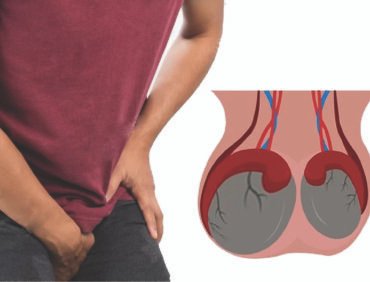What does breakfast have to do with obesity, cardiovascular diseases, diabetes, high blood pressure and some other common illnesses and diseases?
“Do I really need to eat in the morning?”
“As far as I’m not hungry, I don’t think breakfast is so necessary”.
These and more are the questions and statements that pop up in our heads when we think about eating in the morning.
Breakfast is often referred to as the most important meal of the day. It is the first meal of the day that breaks the fast after the longest period of sleep, and is consumed within 2-3 hours of waking.
Eating in the morning helps you burn calories throughout the day by jump-starting your metabolism.
Often times, people who skip breakfast tend to lack the energy to begin the day’s activities, as well as the ability to stay focused. Breakfast consumption has an important role to play in the overall health of an individual.
In addition, it’s not just about eating any food to fulfil all righteousness. Having a healthy breakfast is your ticket to getting all the benefits that come with breakfast consumption.
What is a Healthy Breakfast?

A healthy breakfast consists of food from the dairy, whole grains and fruit groups. Let’s break it down;
- Whole grains: examples include oats, brown rice, whole wheat bread
- Lean protein: examples include eggs, lean meat, legumes and nuts
- Low-fat dairy: examples include low fat/skimmed milk, plain or low-fat yoghurt, low-fat cheeses
- Fruits and vegetables: examples include fresh or frozen fruits and vegetables, 100% fruit juice without added sugar, fruits and vegetable smoothies.
Combination of these food groups provides complex carbohydrates, vitamins, minerals, fiber, protein, and a small amount of fat. This combination packs health benefits and helps you feel full for some hours.
Why Breakfast is Important

When we sleep, the body doesn’t get any energy, since the last food eaten was from the previous night and had been metabolized and used by the body. The body, especially the brain, surely needs energy for the next day. This is the point breakfast is needed.
Breakfast does the body a favour by replenishing the stores of energy and nutrients in our body.
Let’s take a look at some packed health benefits of breakfast consumption;
-
Energy
During sleep period, glycogen which is the stored form of glucose (the main source of energy) is broken down by the liver and released into the bloodstream as glucose. This is done to keep the blood sugar levels stable, as well as fuel the brain. As a result, glycogen stores are low.

Once all of the energy from the glycogen stores is used up, the body would have to turn to fatty acids for energy, which is not a good option. Without carbohydrates, fatty acids are only partially oxidized, which can reduce energy levels.
However, with breakfast consumption, glycogen level is assured of restoration and energy level is assured of a boost.
To some persons, skipping breakfast may seem as one good way to reduce overall energy intake. However, research tells us that even with a higher intake of energy, breakfast eaters tend to be more physically active in the morning than those who don’t eat until later in the day.
2. Essential Vitamins, Minerals and Nutrients

A healthy breakfast food is rich in essential nutrients such as calcium, folate, iron, B-vitamins, Vitamin A, C and fibre.
Research has shown that people who eat in the morning are more likely to meet their recommended daily intakes (RDI) of vitamins and minerals than people who don’t.
Not only does it increase their chances of meeting their RDI of vitamins and minerals, it also provides a lot of that day’s total nutrient intake. Because research has also shown that if the essential nutrients listed above are missed at breakfast, they are less likely to be compensated for later in the day.
3. Improves cognitive function

Studies suggest that not eating breakfast affects your mental performance, especially your attention, memory and concentration levels.
Studies that focused on children revealed that kids who eat breakfast tend to have improved cognitive skills and perform better at school.
4. Weight control

Having breakfast decreases your appetite. This means that you don’t get to feel too hungry or have cravings before lunch time. By eating a high-fiber, nutrient-dense breakfast in the morning, you are less likely to be hungry for most part of the day. Due to the decreased appetite, it would be difficult for you to grab foods that are nearby, which are in most cases not good for your health. Examples of such foods are high energy foods, high fat foods with added sugars or salt – known for increasing weight or increasing body mass Index.
Breakfast simply intervenes by helping to maintain a healthy weight.
5. Reduces risk of illness

Results of some studies have shown that people who don’t have breakfast may be at a higher risk of cardiovascular disease. On the other hand, many studies have shown that those who eat breakfast regularly tend to have a lower risk of obesity, type 2 diabetes, high blood pressure and heart diseases.
6. Improves mood and reduces stress

Breakfast consumption lightens our mood and lower stress levels.
A healthy breakfast has so many health benefits to offer you, hence try not to skip it. Breakfast intake is a healthy eating lifestyle that is highly recommended.
We hope you have gained one or two things from reading this. If yes, kindly share it with others in your cycle to benefit too.
If you are in need of natural remedies for any health challenge, click here to see the list of natural remedies we offer for different medical and health conditions.
Stay healthy and never give up!
Plan B Wellness Limited
+2348099666658 (Whatsapp, Call, SMS)
+2348099666650 (Call and SMS only)
Email: consult@planbwellness.com
IG: @planbwellness
Twitter: @planbwellness







